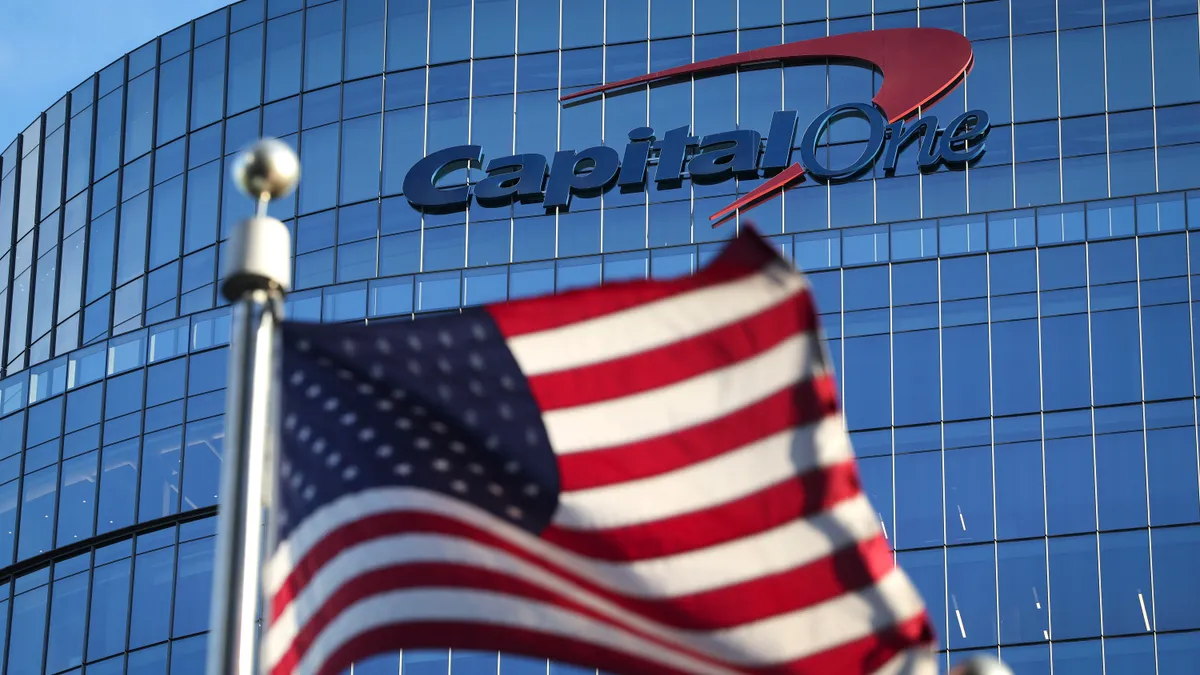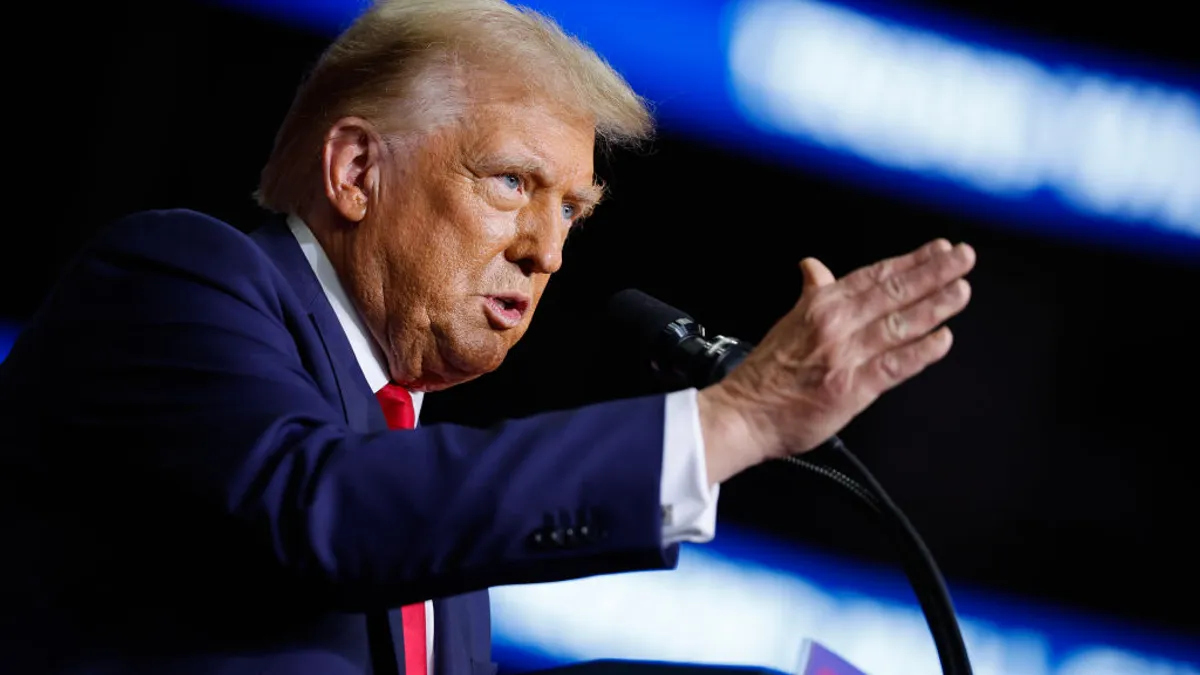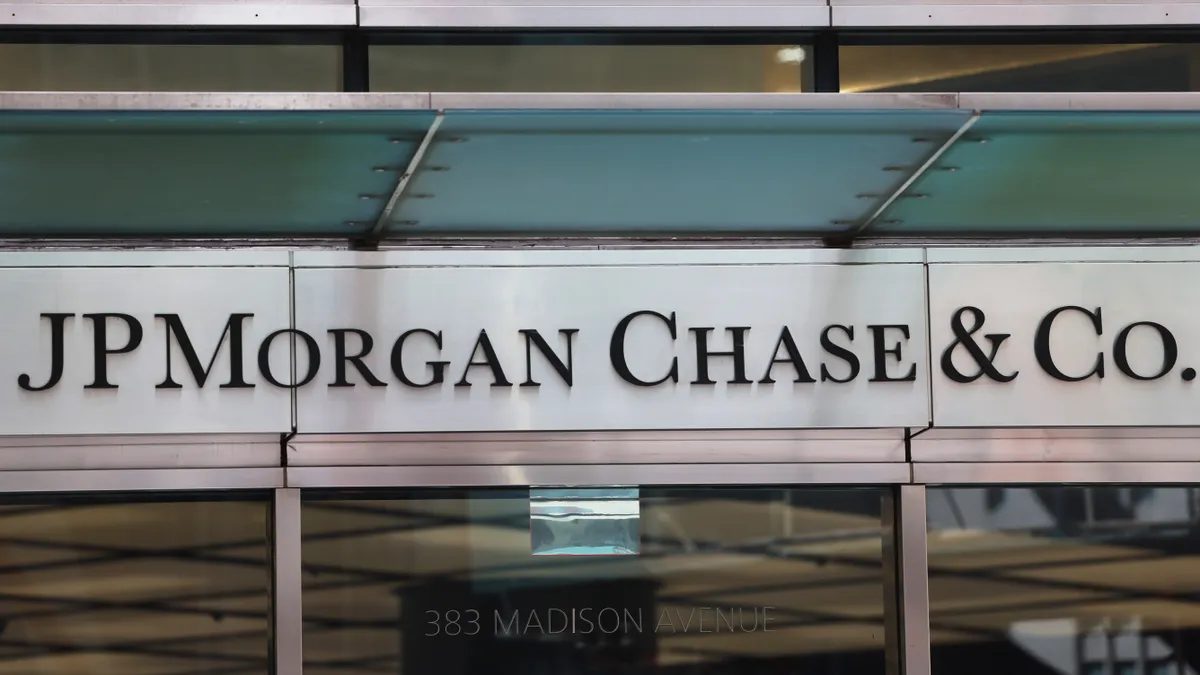Dive Brief:
- Capital One is in contact with the Justice Department over the bank’s proposed acquisition of Discover, as the DOJ advises bank regulators that are reviewing the deal with an eye toward competition, Capital One CEO Richard Fairbank said Thursday.
- The Federal Reserve and the Office of the Comptroller of the Currency this week extended to May 31 their public comment periods on the proposed deal. Comments had originally been due this week.
- Fairbank called that “standard practice,” adding, during the company’s first-quarter earnings call, that the company doesn’t “take any signaling on our deal from the Fed’s decision here." Executives still expect the transaction to close late this year or early in 2025, Fairbank said.
Dive Insight:
McLean, Virginia-based Capital One filed its applications to acquire Riverwoods, Illinois-based Discover with the Fed and OCC in March. In those, the bank is leaning into the argument that the tie-up will increase payment network competition because Capital One can provide a boost to the fourth-largest card network.
“While some have raised concerns about competition, we believe that the facts in favor of the deal will be compelling,” Fairbank said Thursday.
Consumer Financial Protection Bureau Director Rohit Chopra this week said claims that the Capital One-Discover deal would inject competition into the Visa- and Mastercard-dominated credit-card market need to be assessed “very skeptically.”
Capital One aims to leverage its workforce, technology and marketing capabilities to enhance Discover’s competitive viability, Fairbank said Thursday in response to an analyst question on antitrust questions surrounding the deal. The $35.3 billion all-stock deal, in which the fourth-largest credit-card issuer would acquire the sixth-, was announced in February.
Although the deal would push Capital One past JPMorgan Chase to become the biggest credit-card issuer in the U.S., Fairbank said the company sees the purchase bolstering competition among banks, credit-card issuers and payment networks.
He highlighted the numerous competitors Capital One encounters today, from some 4,000 credit-card issuers to a host of new and incumbent fintechs and buy now, pay later providers.
The deal is also poised to benefit “the communities that we serve,” Fairbank said. Capital One this week committed to meeting Discover’s goal of employing 1,000 people at the latter’s customer care center on the south side of Chicago, and provide “continued support” to the companies’ nonprofit partners.
Making his case Thursday, Fairbank said Capital One believes “the facts will show that this transaction is both pro-competitive and pro-consumer,” bringing the combined entity’s products to more consumers and small businesses.
“In the end, that is what we believe the regulators will use their very vigorous process to evaluate,” he added.
In recent months, the OCC and Federal Deposit Insurance Corp. have signaled that large proposed mergers may face more drawn-out timelines and more scrutiny, as the Biden administration more broadly has sought to step up antitrust enforcement.
A number of lawmakers have called on regulators to block the deal, and more than two dozen advocacy organizations have urged regulators to ensure a thorough and transparent review of the merger.
Hundreds of filed comments have called on the agencies to reject the merger. Capital One has also sought comments in favor of the deal from businesses and nonprofits.
The Fed and the OCC typically take several months to work through bank merger applications, in consultation with the DOJ on competition questions, and regulators “engage frequently” along the way, Fairbank told analysts Thursday.
The Justice Department didn’t immediately respond to a request for comment. A spokesperson for the OCC didn’t immediately respond to a request for comment on the deadline extension. A spokesperson for the Fed declined to comment on the extension. The OCC and the Fed both noted in news releases that the extension allows more time for interested parties to weigh in on the proposed deal.











